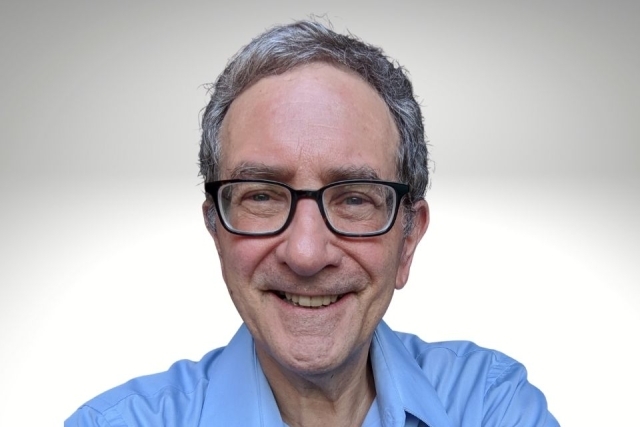
“I find that as students struggle with academically challenging courses or are unprepared for college-level work, it’s incumbent on faculty to provide them with the tools they need to succeed in the classroom.”
For more than 40 years, that has been the overarching goal for Jeffrey Nevid, Ph.D., Professor of Psychology in St. John’s College of Liberal Arts and Sciences.
Dr. Nevid was selected as the recipient of the 2022 Charles L. Brewer Distinguished Teaching of Psychology Award, which recognizes significant contributions to the teaching of psychology. Given annually by the American Psychological Foundation, the awardee receives a plaque, a $2,000 award, and an all-expense-paid trip to the American Psychological Association’s annual convention, where the award is presented. Awardees are also invited to give a special address.
Gina M. Florio, Ph.D., Interim Dean, St. John’s College of Liberal Arts and Sciences, said, “Over the course of his career at St. John’s, Dr. Nevid has consistently put students at the forefront of his work. As Director of the Clinical Psychology program, he had a profound impact on the development and success of numerous psychologists. He is an exemplar of the scholar-practitioner model of engagement with students and his discipline.”
“It is wonderful to be recognized by your peers,” Dr. Nevid stressed. “It’s based on a lifetime of work in the classroom and contributing to knowledge in the field.”
At St. John’s, Dr. Nevid has taught at the undergraduate and graduate levels and served as Director of Clinical Psychology from 1983 to 2018. He is the author or coauthor of textbooks in several areas in the field, including: abnormal psychology, health psychology, human sexuality, introductory psychology, and the psychology of adjustment.
A proponent of evidence-based therapy, which posits that therapeutic methods need to be grounded in studies that prove their effectiveness, Dr. Nevid has used that model as a framework for what he does in the classroom. Over the years, he has conducted many studies with his graduate students on effective pedagogical techniques —the results of which have been published in leading scientific journals—in addition to giving presentations at numerous professional conferences.
“The old model of the brain is one of a sponge that just absorbs information,” Dr. Nevid noted, adding that does not effectively represent the learning process. “We know that in order for students to be successful, they need to become active learners engaged in the learning process.”
A practicing clinical psychologist, Dr. Nevid came to St. John’s because he wanted to become more involved in using his skills as a clinician, while his earlier teaching was largely limited to research methods.
Under Dr. Nevid’s stewardship, the Clinical Psychology program at St. John’s became accredited in 1984 by the American Psychological Association and has become one of the most respected programs in the area. “The opportunity to combine teaching and research with my clinical skills is what attracted me to St. John’s,” he said. He added that he has a unique opportunity to teach across the academic spectrum, spanning courses in introductory psychology for freshmen to advanced level clinical supervisory courses for doctoral students.
Dr. Nevid had high praise for the support he and the Doctoral Program in Clinical Psychology program have received from the administration of St. John’s. He added that the University devoted major resources to developing the St. John’s University Center for Psychological Services, which serves as the primary training site for clinical psychology students and offers mental health services to members of the local community on a sliding scale, in line with the University’s Vincentian mission.
One of Dr. Nevid’s goals is to provide his undergraduate students with pathways to successful careers, even though most won’t go on to a career in psychology. “The principles of psychology underpin so much of what people do in fields like management, marketing, and education. We try to make those connections more visible to students. They will draw upon what they learn in the classroom in terms of parenting and interacting with others, as well as recognizing and being sensitive to the emotional needs of people.”
He added, “We need to find ways to keep students engaged in the classroom. I think of the classroom as a learning laboratory, providing a means of testing teaching methods that can help students succeed. That is what it’s about. The mission of St. John’s is very clear. It’s focused on student success and helping them in whichever path in life they pursue.”
